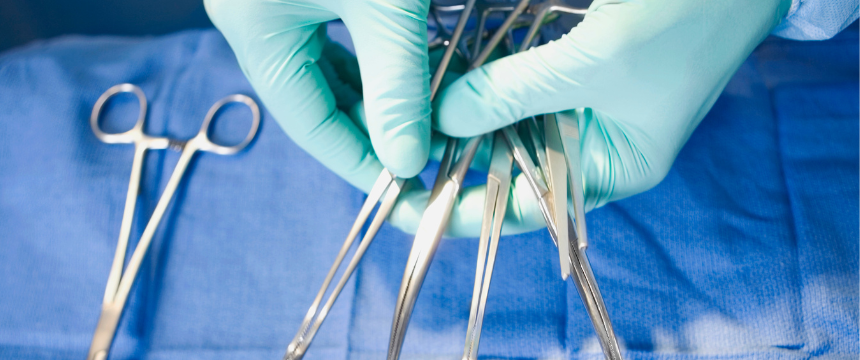
Allied Health
Carteret Community College’s Allied Health programs prepare students for essential roles in the healthcare industry, equipping them with the skills and knowledge needed to support patient care. Allied health professionals (AHPs) work alongside physicians, nurses, and other medical staff to ensure quality care and efficient healthcare operations.
Our Allied Health programs include:
- Coding, Billing, & Insurance – Learn the fundamentals of medical coding, insurance claims processing, and healthcare reimbursement to help healthcare facilities run smoothly.
- CPR & Emergency Care – Gain life-saving skills through CPR and emergency care training, preparing you to respond confidently in critical situations.
- Pharmacy Technician – Train to assist pharmacists in medication preparation, inventory management, and patient support in retail and clinical settings.
- Phlebotomy – Develop hands-on skills in blood collection, specimen handling, and lab procedures to play a vital role in diagnostic healthcare.
- Sterile Processing Technician – Learn how to clean, sterilize, and manage medical instruments to ensure patient safety and infection control in healthcare facilities.
With hands-on training, expert instruction, and industry-aligned coursework, our Allied Health programs provide a strong foundation for careers in the growing healthcare field. Whether you’re starting your career or seeking professional development, Carteret CC offers the training you need to make a difference in patient care.
Explore our Allied Health programs and take the next step toward a rewarding healthcare career!
Quick Links
Available Classes
Additional Program Information
Program Overview
Under the supervision of licensed pharmacists, pharmacy technicians handle essential tasks such as labeling prescription bottles, assisting with prescriptions, managing insurance forms, and maintaining patient records. Students will learn to count pills, measure medications, verify prescriptions, and support pharmacy operations. Graduates can pursue careers in retail pharmacies, hospitals, wholesale industries, or government organizations, gaining the skills needed for this rewarding profession.
Program Enrollment
This program typically offers start dates in August, January, and May. Please review the list above for available sections open for enrollment.
Program Objectives
This 96-hour program includes training in the following areas:
- Communication within the pharmacy
- History of Drugs/Pharmacy today
- Community Pharmacy Vs. Institutional Pharmacy
- Pharmaceutical Terminology
- Receiving the medication order (prescription)
- Federal laws, OSHA, Drug Recalls, Drug Information Sources
- Controlled Substances, Drug Classification
- Repacking Medications
- Pharmaceutical Calculations
And much more!
Examination
After successful completion of the program, participants can opt to sit for the National Pharmacy Technician Certification Exam.
Program Contact
Program Overview
Learn to perform a variety of blood collection methods using proper techniques and precautions, including vacuum collection devices, syringes, capillary skin punctures, butterfly needles, and blood culture specimen collection. Includes lecture, lab, and clinical hours. Upon completion, students are urged to seek Certified Phlebotomy Technician certification through the Association of Clinical Pathology.
Prerequisites
- High school graduation / GED transcript
- TABE reading test score 575 or higher
- All vaccinations as directed by the clinical site
- Pass a background check and drug screen, which Carteret Health Care will evaluate for clinical admission
Program Hours
Class/lab: 84 hours (7 weeks)
Clinical: 120 hours
Total hours: 204 hours
Program Enrollment
This program typically offers start dates in August and January. Please review the list above for available sections open for enrollment.
Certification
Upon successful completion, students are urged to seek Certified Phlebotomy Technician certification through the American Society of Clinical Pathology. For additional training and certification, students should consider taking the Medical Lab Assistant course.
Program Contact
Program Overview
The major tasks of a Sterile Processing Technician are to process and sterilize equipment and supplies from the operating suites and nursing units of the hospital. These medical professionals are specially trained in the proper care, cleaning, decontamination, and sterilization of all surgical instrumentation.
Technicians take equipment inventory, maintain accurate sterilization records, report repairs, and monitor records. They follow strict aseptic protocols to ensure that they maintain a clean and safe environment. Sterile Processing Technicians play an essential role in patient safety and infection control.
Program Enrollment
This program typically offers start dates in August, January, and May. Please review the list above for available sections open for enrollment.
Certification
Following successful completion of the class, the student will be eligible to take the CSPDT national exam through the NCCA.
Program Contact
Related Programs
Similar programs you may be interested in!
